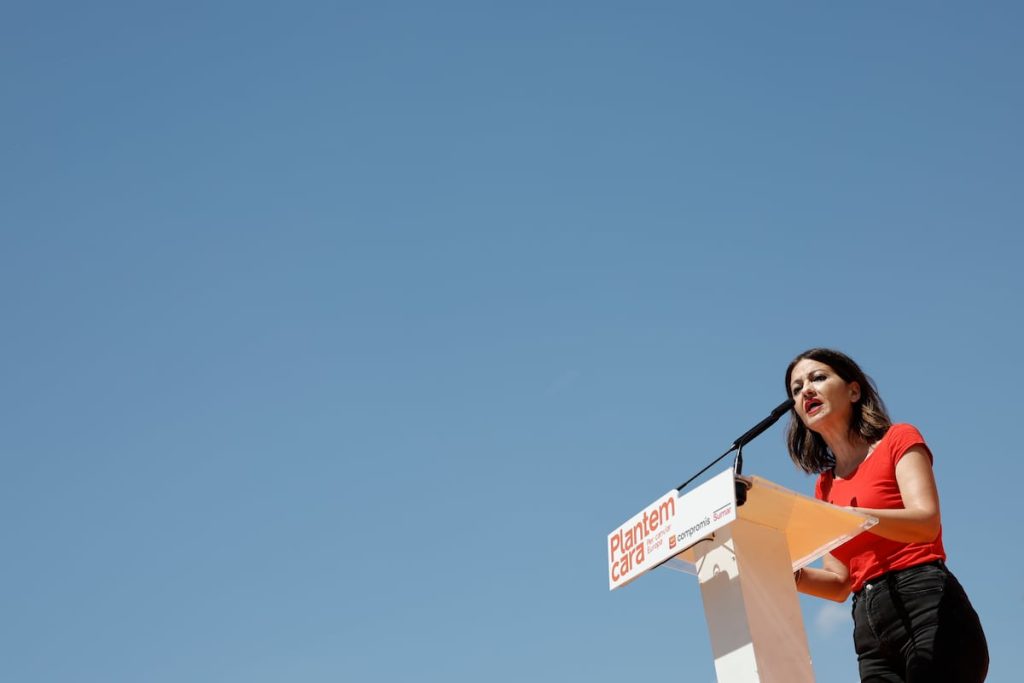Allowing 16-year-olds to vote is becoming less of a rarity. In the past European elections, teenagers of that age were able to cast their vote in five countries: Germany, Austria, Belgium, Malta, and Greece, the latter if they turned 17 in 2024. In the two largest South American countries, Brazil and Argentina, this has been in place for years. In Spain, the debate has come and gone over time. It has reached Congress on multiple occasions without success. But this time, supporters have made progress: the lower house plans to create a commission that will hear from experts and social organizations about the possible reform of the electoral law to advance the voting age by two years. The proposal, spearheaded by the Ministry of Youth and Children led by the Left United (IU) leader Sira Rego, was approved before the holidays with the support of left-wing groups and the Canarian Coalition.
In May last year, on the eve of the European elections, Rego referred to the experience of countries that have implemented this measure to illustrate one of the central arguments of its supporters: lowering the voting age encourages political participation among young people. “It’s an old demand of the IU and its youth,” recalls Nahuel González, the deputy from that party, included in Sumar, who defended the proposal approved on June 27 in the Youth and Children’s Commission of Congress. The initiative had the support of the PSOE, which had previously been hesitant. In September 2022, the socialists abstained from a similar proposal presented by ERC, which, faced with rejection from the right, ultimately failed. Now, the government partners have agreed to bring the issue to a subcommittee that deals with electoral law reforms.
The two ruling parties assume that the initiative faces a “long journey.” “Starting the debate is already a victory,” González and Camino agree, acknowledging that it would require “broad consensus.” Within the government’s supporting bloc, there are some reluctances, such as the PNV. And opposition from the right has been staunch. The PP argues, among other things, that it would go against the constitutional provision that sets the age of majority at 18. “But I don’t give up trying to convince the PP,” says González. Both he and Camino point out that in other countries, the measure was supported by conservatives and has the favorable opinion of bodies such as the Council of Europe or the Youth Council of Spain. “It’s not a matter of left and right,” underlines the head of the Socialist Youth, but of “expanding rights.”
The most common argument among supporters is that if a 16-year-old can work or decide on medical treatment, they should also be able to vote. And that this measure would mitigate political disenchantment among young people and increase their commitment to democracy. Regarding their preparation to make a political decision, González has no doubt: “Today’s youth have access to information like never before.” “Isn’t it absurd that Lamine Yamal cannot vote?” he concludes. Neuroscientists have often positioned themselves among the detractors, arguing that at that age, individuals are overly emotional and susceptible to ill-considered decisions. In the political arena, there are those who oppose it from the left, arguing that much of the youth has been won over by the far right.
If the decision were made today, the electoral roll of almost 37.8 million voters would increase by just over one million. It would represent a 2.7% increase, probably not significant enough to alter the election results, especially if the high level of abstention among new voters is maintained, “a classic of all democracies and all countries,” explains Belén Barreiro, director of the demoscopic institute 40dB. In her studies, Barreiro has found that this age group is “very attracted to the far right,” with leanings towards the extreme right reaching 40%. “Vox has become a rebellious vote for many young people,” she points out.
The teens who are currently 16 were born in 2008, “they are the generation of the crisis, they have always lived in a crisis, and that gives them a different profile,” emphasizes Oriol Bartomeus, director of the Institute of Political and Social Sciences (ICPS) in Barcelona. Bartomeus, who is the author of a recent book on generational attitudes in politics, highlights that this generation has a very pragmatic view of politics, with no dogma. They act based on self-interest and do not identify with a specific party, but only with themselves. Studies confirm that the ideological gap between sexes in youth has widened, with girls leaning left and boys towards the extreme right. Bartomeus emphasizes that the key issue is not whether 16-year-olds should be allowed to vote but the declining quality of information in democracy.
In conclusion, the debate over lowering the voting age to 16 in Spain has gained momentum, with the proposal being supported by left-wing parties and youth organizations. While some argue that young people may not be emotionally mature or politically informed enough to vote, supporters believe that increasing participation among youth will strengthen democracy and address political disenchantment. The potential impact on election results and the influence of political ideologies on young voters are key considerations in this ongoing discussion.


